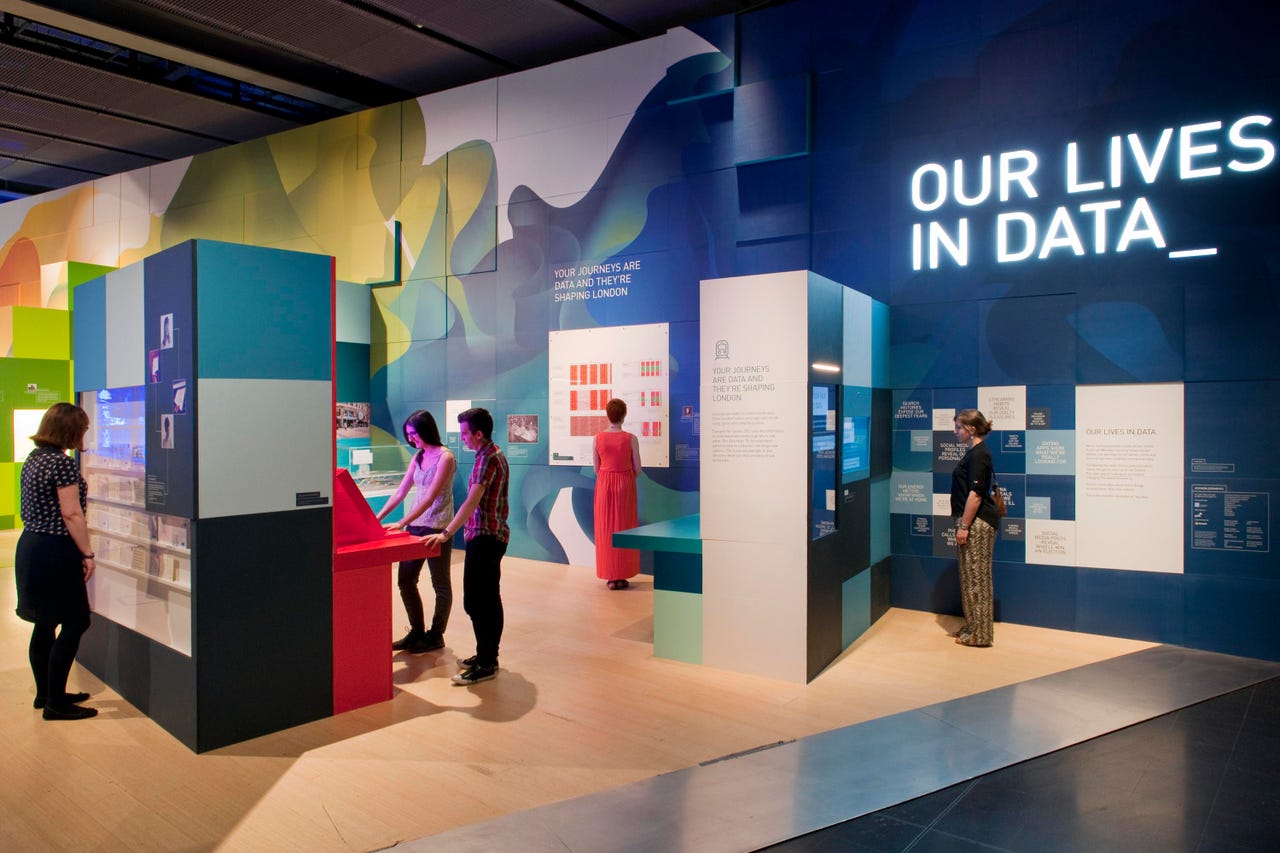This new Science Museum exhibition looks to inspire the data scientists of the future


The exhibition is exploring how big data is transforming the world around us.
An exhibition at London's Science Museum hopes to inspire the data scientists of the future.
The Our Lives In Data exhibition is designed to help people explore the "invisible revolution of big data" and the ways it's being collected, analysed, and used.
Speaking at the launch of the exhibition, Edwina Dunn, one of the founders of the data consultancy Dunnhumby -- famous for helping to establish the Tesco Clubcard customer scheme -- said there's a "very exciting future" in data and that the UK "is leading the way" in this sector.
She pointed out the rapid rise of data science and that it has brought new demand for new skills, which "requires more mathematics and science education to fill many, many more new job opportunities." Some of these types of jobs, Dunn explained, "simply didn't exist as little as 10 years ago, probably five years ago, and many of them are new this year".
Dunn chairs a campaign called Your Life designed to encourage young people study maths and physics, as well as support the Science Museum in its effort to "understand the power and the importance of data in our future lives".
There's no doubt that data scientists are in demand, with more vacancies than there are people to fill them, but according to Tom Lewis, head of data analytics at professional services company PwC, there are ways in which members of the existing workforce can learn data science. It doesn't need to rely on university graduates.
"One of the real trends we're seeing is the modern workforce is very good at learning these skills, and the adoption of things like MOOCs [Massive Open Online Courses] and other training platforms is really enabling people -- even if they're not naturally trained in these skills -- to learn them quickly," Lewis told ZDNet.
"There's certainly more need for these skills, but the pool is growing quite fast, and I've got a good feeling the educational infrastructure is there," he added.
According to Lewis, the evolution of data analysis and data science could really aid organisations with finding new solutions to problems which they may not have even been able to see before.
"What data enables -- and what this exhibition helps -- is to see that there's a different lens through which how a lot of problems can be viewed. It's a mindset thing; many of us grew up in a world where you find a business problem and you solve a business problem," he said.
"We're now in a world where that doesn't go away but there's a different way of viewing the problems that can bring about different outcomes. One of the challenges of employers is to think about how do you solve problems through that lens," Lewis added.
READ MORE ON DATA SCIENCE